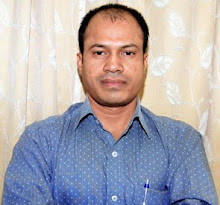(TOI)
BEIJING. Chinese officials expect a "little repercussion" and some "small shock waves" if the 76-year old Dalai Lama dies at this time. But they do not expect any major changes that can threaten the political stability in Tibet.
"Of course there will be a little repercussion due to religious factors, but we will take that into consideration and will surely guarantee the long-term political stability in Tibet," Qiangba Puncog, chairman of the Communist Party's Standing Committee in charge of Tibet Autonomous Regional People's Congress, said on Monday.
Chinese officials have objected to a recent statement by the Dalai Lama, who recently said the system of reincarnation might be abolished after he is no more.
"What he said does not count," Padma Choling, chairman of the Tibet autonomous regional government, said. "I am afraid it is not up to anyone (to decide) whether to abolish the reincarnation institution or not," he said while pointing out that it is a 1,000-year old tradition.
Dealing with the issue of reincarnation is part of the larger program to avoid a possible upheaval in Tibet if and when the region's spiritual leader dies.
"I dare not say that Tibet will not see any incidents, big or small, forever, but I dare say that the current situation in Tibet is on the whole stable, and the Tibetan people wish for stability and are opposed to any king of trouble-making," he said.
Tibet's former governor, Qiangba Puncog, was even more forthright.
"Of course there will be some small shock waves due to religious factors, but we will take that into consideration and will surely guarantee long-term political stability in Tibet," he said.
Zhang Qingli, the Communist Party chief in Tibet, said frankly that the region was still facing "very grave challenges" in the fight against separatist activities.
BEIJING. Chinese officials expect a "little repercussion" and some "small shock waves" if the 76-year old Dalai Lama dies at this time. But they do not expect any major changes that can threaten the political stability in Tibet.
"Of course there will be a little repercussion due to religious factors, but we will take that into consideration and will surely guarantee the long-term political stability in Tibet," Qiangba Puncog, chairman of the Communist Party's Standing Committee in charge of Tibet Autonomous Regional People's Congress, said on Monday.
Chinese officials have objected to a recent statement by the Dalai Lama, who recently said the system of reincarnation might be abolished after he is no more.
"What he said does not count," Padma Choling, chairman of the Tibet autonomous regional government, said. "I am afraid it is not up to anyone (to decide) whether to abolish the reincarnation institution or not," he said while pointing out that it is a 1,000-year old tradition.
Dealing with the issue of reincarnation is part of the larger program to avoid a possible upheaval in Tibet if and when the region's spiritual leader dies.
"I dare not say that Tibet will not see any incidents, big or small, forever, but I dare say that the current situation in Tibet is on the whole stable, and the Tibetan people wish for stability and are opposed to any king of trouble-making," he said.
Tibet's former governor, Qiangba Puncog, was even more forthright.
"Of course there will be some small shock waves due to religious factors, but we will take that into consideration and will surely guarantee long-term political stability in Tibet," he said.
Zhang Qingli, the Communist Party chief in Tibet, said frankly that the region was still facing "very grave challenges" in the fight against separatist activities.


No comments:
Post a Comment